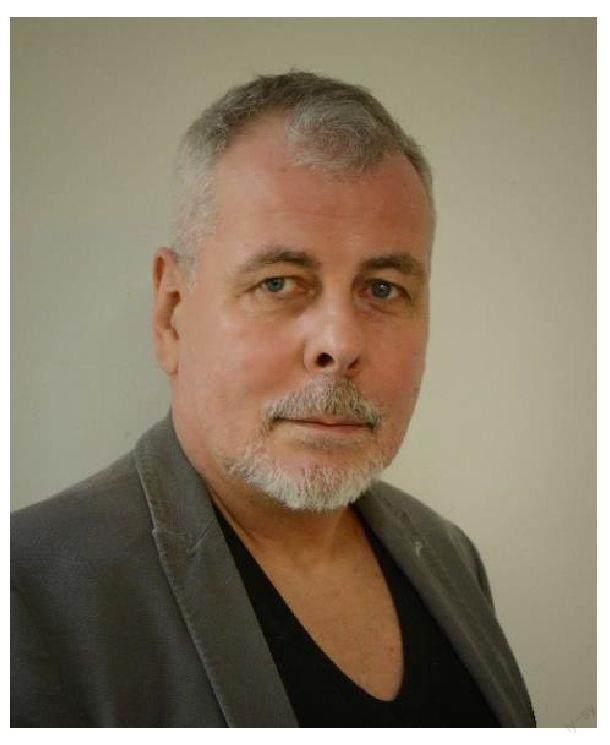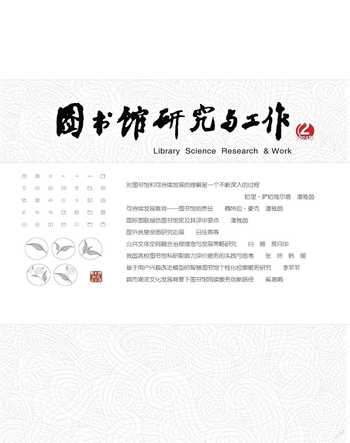对图书馆和可持续发展的理解是一个不断深入的过程


编者按:
可持续发展是当下全球的核心议题,也是我国“十四五”时期的政策重点,越来越受到国内外图书馆领域的关注和重视。然而,业界对可持续发展图书馆的概念、图书馆和可持续发展的关系等问题仍存在一些认知模糊。国际图书馆协会与机构联合会(International Federation of Library Associations and Institutions, IFLA,以下简称“国际图联”)环境、可持续发展和图书馆专业组(Environment, Sustainability and Libraries Section,ENSULIB)是国际图联最活跃的专业组之一。ENSULIB承诺以联合国可持续发展目标、巴黎气候协定以及联合国其他相关文件为指导,鼓励图书馆员以更环保和可持续的方式行动,支持全球图书馆的绿色行动,为社区和社会的可持续发展作出贡献。ENSULIB发起的国际图联“绿色图书馆奖”已经成为为全球绿色图书馆和图书馆项目发声的重要奖项。2022年和2023年,ENSULIB分别荣获了国际图联“最具活力和影响力专业组”(Dynamic Unit and Impact Award, DUIA)特别提名奖和全面成就奖。为此,我们邀请了ENSULIB的3位主要负责人进行对谈,并就如何申报国际图联“绿色图书馆奖”提出建议,以期为业界理解和研究图书馆和可持续发展相关问题提供参考。
潘雅茵(Priscilla Pun):国际图书馆协会与机构联合会(International Federation of library Associations and Institutions, IFLA,以下简称“国际图联”)环境、可持续发展和图书馆专业组(Environment, Sustainability and Libraries Section,ENSULIB)秘书,曾任ENSULIB信息协调员(2021—2023年),澳门大学图书馆技术服务组事务主管。
哈里·萨哈维尔塔(Harri Sahavirta)博士:ENSULIB主席(2021—2023年),芬兰赫尔辛基阿拉比亚图书馆(Arabianranta Library)和瓦里拉图书馆(Vallila Library)馆长。自2011年以来,他一直是ENSULIB的积极成员,曾担任ENSULIB小组召集人(2015—2019年)、秘书(2020年)等多个职务,参与了欧洲多个与图书馆可持续发展相关的项目。
潘雅茵:2022年,ENSULIB给出了绿色图书馆的定义。请谈谈您对这个定义的理解,对于ENSULIB的使命而言,它意味着什么?
萨哈维尔塔:总的来说,我不太相信存在严格的定义,因为现象通常并不明确,而是相当模糊的。并且,现象也在不断变化,它们的条件在不同的时间和地点也可能有所不同。这一点对于绿色图书馆来说尤其如此。世界各地的绿色图书馆面临着不同的环境挑战和问题,我们对可持续发展概念的理解也在不断深化。然而,ENSULIB对绿色图书馆的定义是意义重大的,因为过去通常认为的绿色图书馆只关注图书馆建筑本身。绿色图书馆被简单地定义为绿色图书馆建筑,忽视了可持续的图书馆服务以及可持续性的社会方面。因此,ENSULIB给出的这个定义是尝试在现有定义的基础上进行拓展,并加深我们对可持续发展的理解。
潘雅茵:ENSULIB是何时成立的?您认为当时成立ENSULIB的必要性体现在哪里?
萨哈维尔塔:ENSULIB成立于2009年,当时是作为国际图联的一个特别兴趣小组。那会大家的讨论还是主要集中在图书馆建筑方面,但也有一种新的认识蓄势待发,图书馆员开始探讨图书馆对环境可能产生的影响。随着对气候变化认识的加深,出现这种情况也很正常。因此,有必要成立一个专门的工作组来研究环境问题,因为绿色建筑的概念已经相对明确,但图书馆员对绿色图书馆服务的理解却还是模糊不清的。最初,人们只是意识到图书馆提供共享空间(用于学习和工作等)和设施,而现在,图书馆代表着共享经济,也重视并强调和联合国可持续发展目标的关联性。
潘雅茵:在ENSULIB成立初期,您是如何“定义”并强化其目标的?在此过程中遇到了哪些困难或挑战?
萨哈维尔塔:我参加了第一届ENSULIB会议,当时就提出了我的看法:我们无法重建所有的图书馆,但我们必须学会以更可持续的方式来运营现有的图书馆建筑。挑战在于,这往往被理解成只需(仅需)遵循绿色办公原则,即易于衡量且容易被添加到(一般的)环境项目和认证中。当时还没有专门为图书馆量身定制的环境标准。
潘雅茵:过去十年间,世界各地的图书馆应对环境挑战方面的工作发生了哪些变化?有没有一些根本性的范式转变?
萨哈维尔塔:世界不同地区的情况各有不同。一些国家缺乏基础设施,因此图书馆致力于提高人们对垃圾分类重要性的认识;而另一些国家面临着识字率低的困境,这显然影响了人们对环境工作重要性的认知;还有一些国家的问题主要是过度消费和数字垃圾。处于不同环境中的图书馆所扮演的角色自然也有相当大的区别。
然而,随着联合国《2030年议程》(2015年)的启动,我们可以明显地看到根本性的转变。现在,人们对可持续的理解更为广泛,不仅强调了环境,还强调了其社会面(而非仅考虑经济因素)。可持续性和“责任”的社会面已成为关注的核心。
与此同时,关于艺术和文学以及它们如何增强人们的适应能力并给予人们力量的新思考也开始涌现。因此,趋势已经非常明显:对图书馆和可持续发展的认知已经从图书馆建筑扩展到了图书馆事业的核心,涵盖了信息获取、共享空间和文学作品——对社会面因素重要性的認识也日益深入。图书馆倡导平等和民主的价值观,以期为讨论环境问题提供平台。
未来,图书馆应更加关注数字化转型对环境的影响。数字化减少了纸质文献和实体馆藏的数量,但也带来了数字足迹的问题,比如存储数字数据会对环境产生的影响。
潘雅茵:您认为目前ENSULIB最具标志性(或影响力)的活动是什么?接下来ENSULIB有什么计划?
萨哈维尔塔:我认为每年一次的国际图联绿色图书馆奖是一项非常了不起的活动。通过这个奖项,不仅优秀的图书馆和图书馆项目得到了表彰,我们也在这一过程中为创建和制定绿色图书馆标准作了大量工作。我们希望入选的这些图书馆和项目能够成为所有图书馆的灵感来源。
此外,ENSULIB也在积极地创建和发布有关可持续发展的各种形式文本,例如海报、核验清单以及“让图书馆变得更加绿色”的海报范例。这些内容也被翻译成多种语言以便让更广泛的用户受益。
最后,值得一提的是,ENSULIB在2021年升级成为了专业组,原来只有几个成员的特别兴趣小组如今已发展成拥有近100名机构和个人成员的专业组,其中还包括了許多图书馆协会。这意味着ENSULIB在国际图联和全球图书馆领域的重要性已大幅提升。
以下为访谈的英文原文:
The Understanding of Libraries and Sustainable Development is A Continuously Deepening Process
Pan:ENSULIB has made a definition of a green library in 2022. May I know how you think about this definition? Is it important to ENSULIBs missions and how?
Sahavirta:In general, I do not believe in strict definitions since phenomena are not usually unambiguous, but quite vague. Phenomena are also changing, and their conditions may vary at different times and locations. This holds certainly for green libraries. Green libraries confront different kind of environmental challenges and problems in different parts of the world and our conceptual understanding on sustainability still increases. However, ENSULIBs definition of green library is remarkable since the accepted one focused solely on library buildings. Green libraries have usually been defined as green library buildings and no weight has been given to sustainable library services, nor social aspects of sustainability. Thus, the new definition was an attempt to broaden the existing definitions and increase our understanding.
Pan:When was the ENSULIB SIG established? Why did you think it was necessary to establish ENSULIB at that time?
Sahavirta:ENSULIB was established as an IFLA Special Interest Group in 2009. At the time, the discussion concerned mostly the library buildings, but a new awareness was about to evoke, and librarians begun to ask what kind of environmental impact libraries might have. It may not be a surprise that this happened at the same time as the awareness of climate change increased. It was necessary to have a special group devoted to environmental questions since it was clear what makes a building green, but librarians had very vague idea of green library services. At first, it was realized that libraries offer shared spaces (for studying and working etc.) and devices – now libraries represent sharing economy and emphasize UNs SDGs.
Pan:How did you “define” and enhance ENSULIBs aims in the beginning of the establishment? Any difficulties or challenges?
Sahavirta:I participated the first ENSULIB sessions with a statement that we cannot rebuilt all the libraries but must learn to run libraries in a more sustainable manner in existing buildings. However, the challenge was that this was understood to mean (only) green office principles, i.e., activities which are easily measured and added to (quite general) environmental programs and certificates. There were not environmental criteria tailored for libraries.
Pan:How the environmental work in libraries has been changed during the past ten years indifferent parts of the world? Any paradigms have been shifted?
Sahavirta:The situation is naturally quite different in different parts of the world. There are countries where there are lacks in infrastructure and libraries attempt to increase the awareness of the importance on sorting waste while some other countries struggle with low literacy and its impact on environmental work. And finally, there are countries where the problem is mostly overconsumption and digital waste. Libraries role is quite different in all these situations.
Nevertheless, there has been a clear paradigm shift which begun (or became apparent) with UN Agenda 2030 and Sustainable Development Goals (2015). Sustainability was now understood in a broader sense, including social and environmental emphasizes (in addition to economic considerations). The social aspect of sustainability and “responsibility” have become central.
At the same time, new ideas arose concerning art and fiction and how they promote resilience and empower people. Hence, the development has been quite clear: libraries and sustainability stemmed from the buildings to the core of librarianship, including access to information, shared spaces, and fiction – while social aspects also gained weight. Libraries advocate equality and democratic values and wish to offer a forum for discussion on environmental issues.
In future, libraries should also think more the environmental impacts of the digital shift. Digitalization has decreased the number of printed documents and collections but there is also a digital footprint and, for example, storing digital data has environmental impacts.
Pan:What are the signature (or most impactful) activities of ENSULIB at present? What is the future plan of ENSULIB?
Sahavirta:I would say that IFLA Green Library Award which is given annually is a very remarkable activity. It is not only that great libraries and library projects are elected and prized, but we have done a lot of work to create and develop the criteria for green libraries. In addition, it is our wish the Award finalists would be a source of inspiration for all libraries.
ENSULIB has also been very active in creating and publishing short documents on sustainability, like poster, check lists and “what makes a library green”. These have been translated into several languages so that they would reach a broader audience.
Finally, one should not pass the fact that ENSULIB gained a full section status only two years ago. Former Special Interest Group with couple of members has grown into a section which has almost 100 institutional and personal members, including many library associations. This means that ENSULIBs significance in IFLA and in the global library field has increased enormously.

